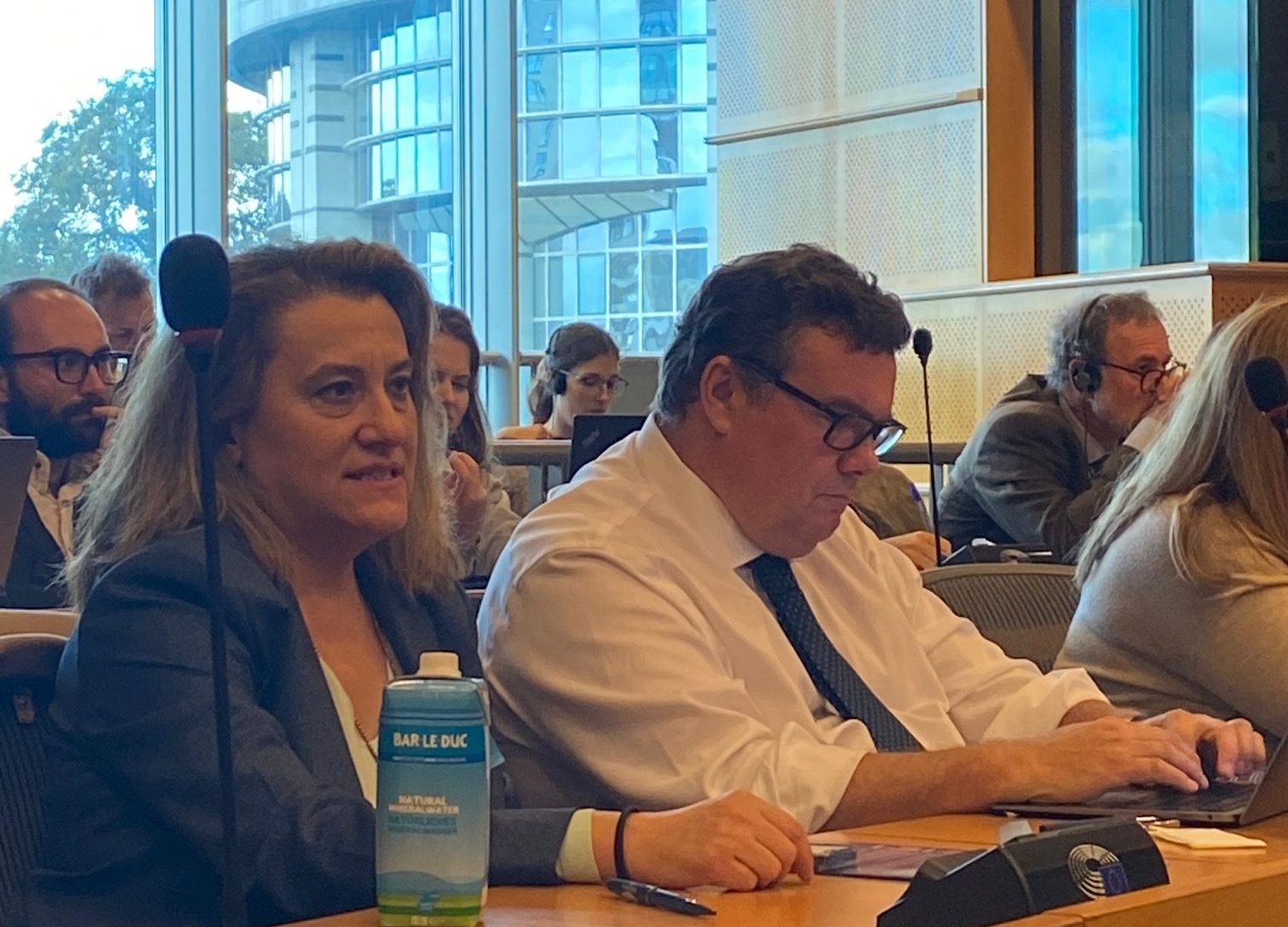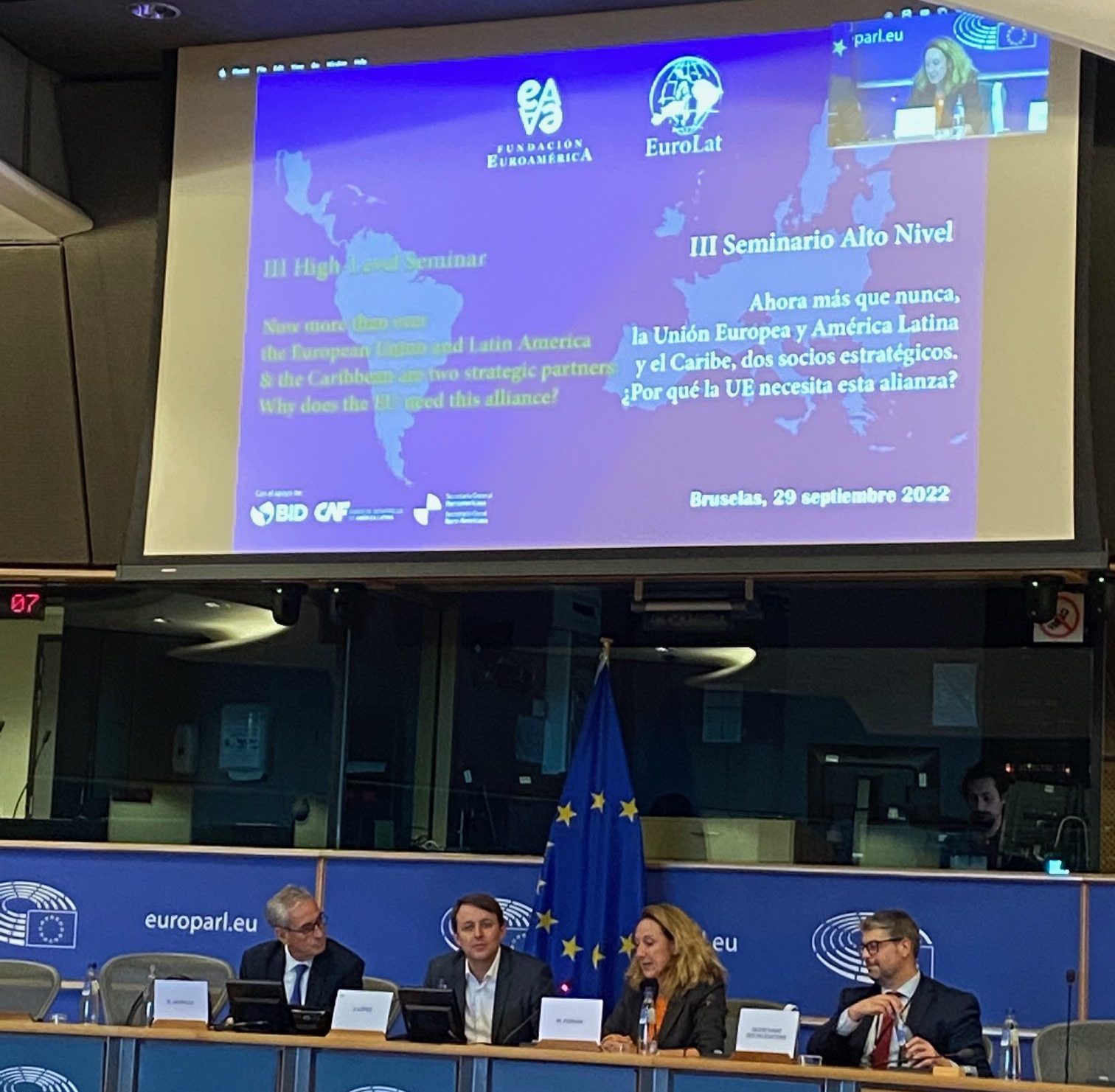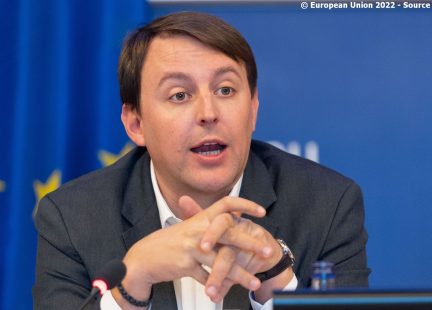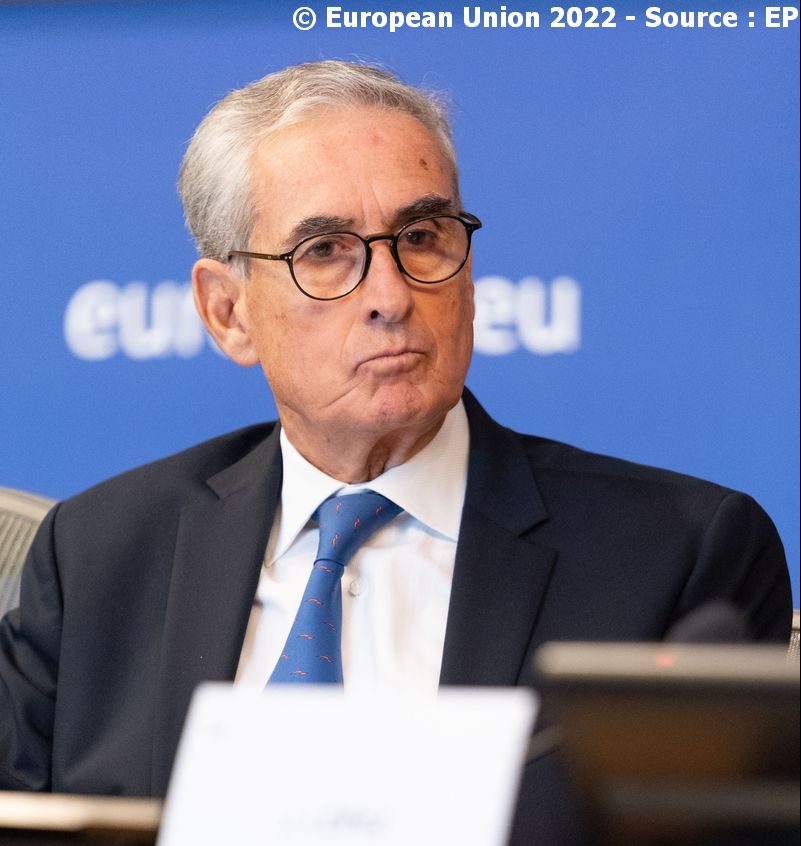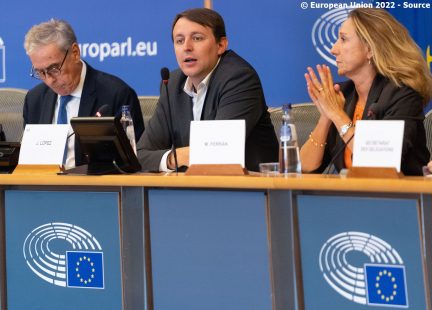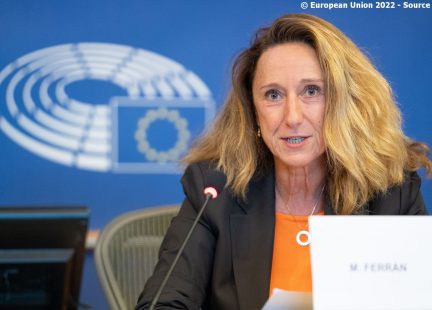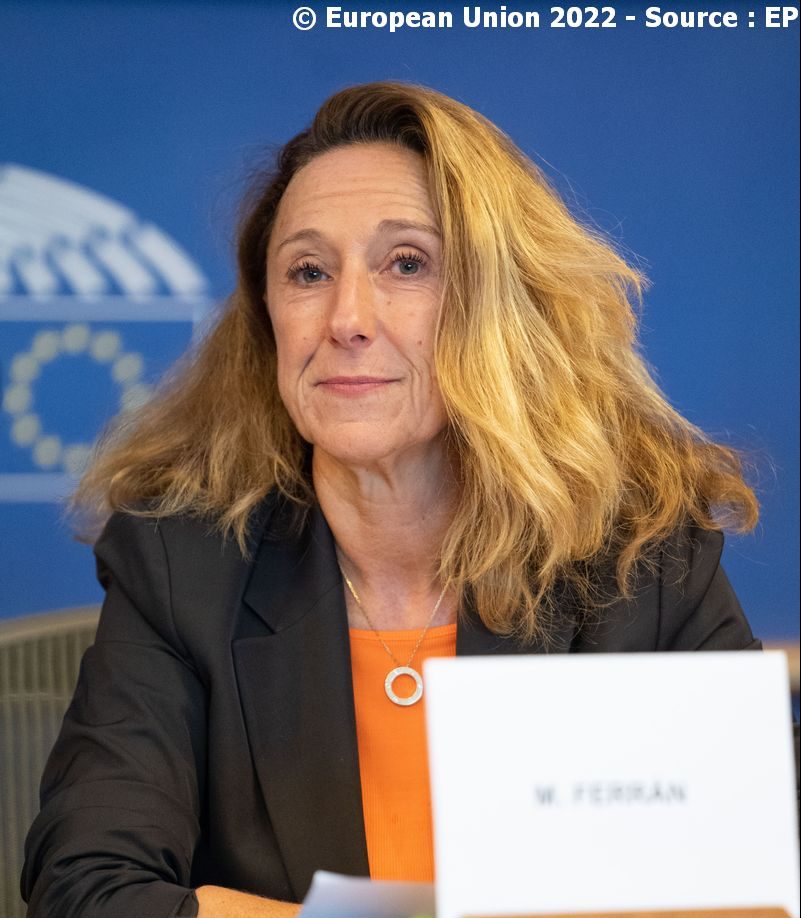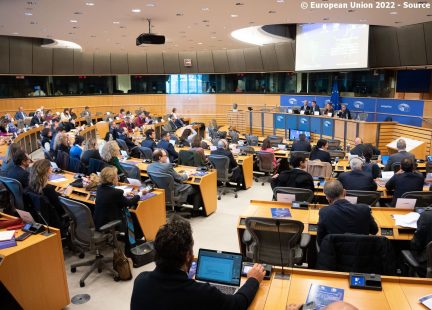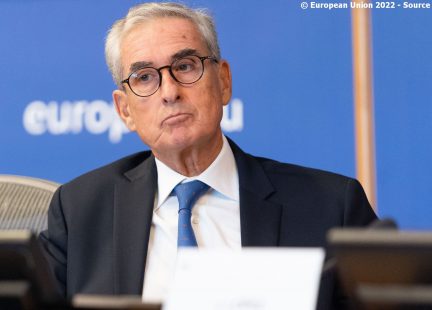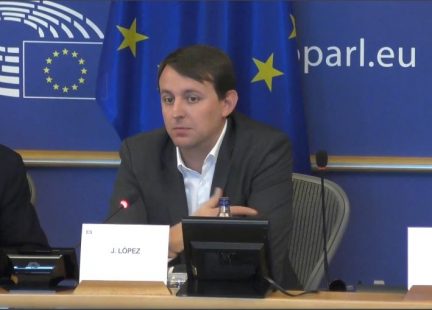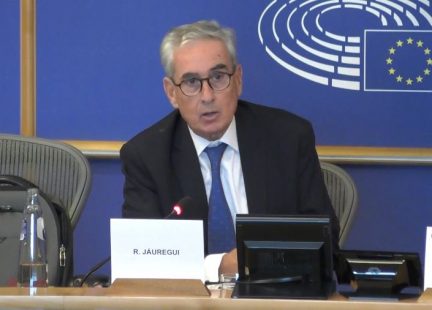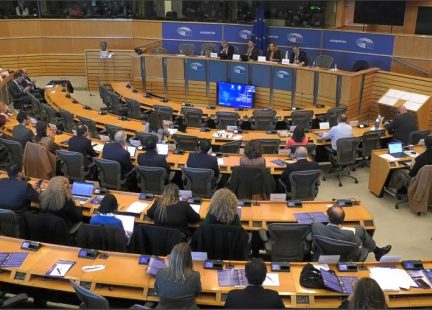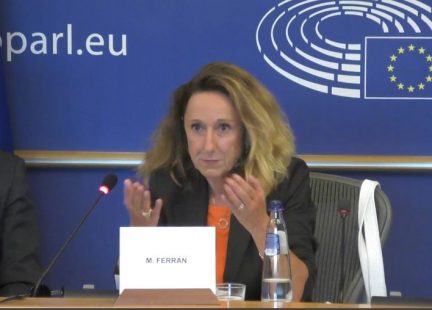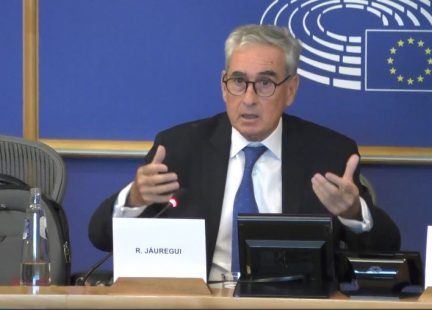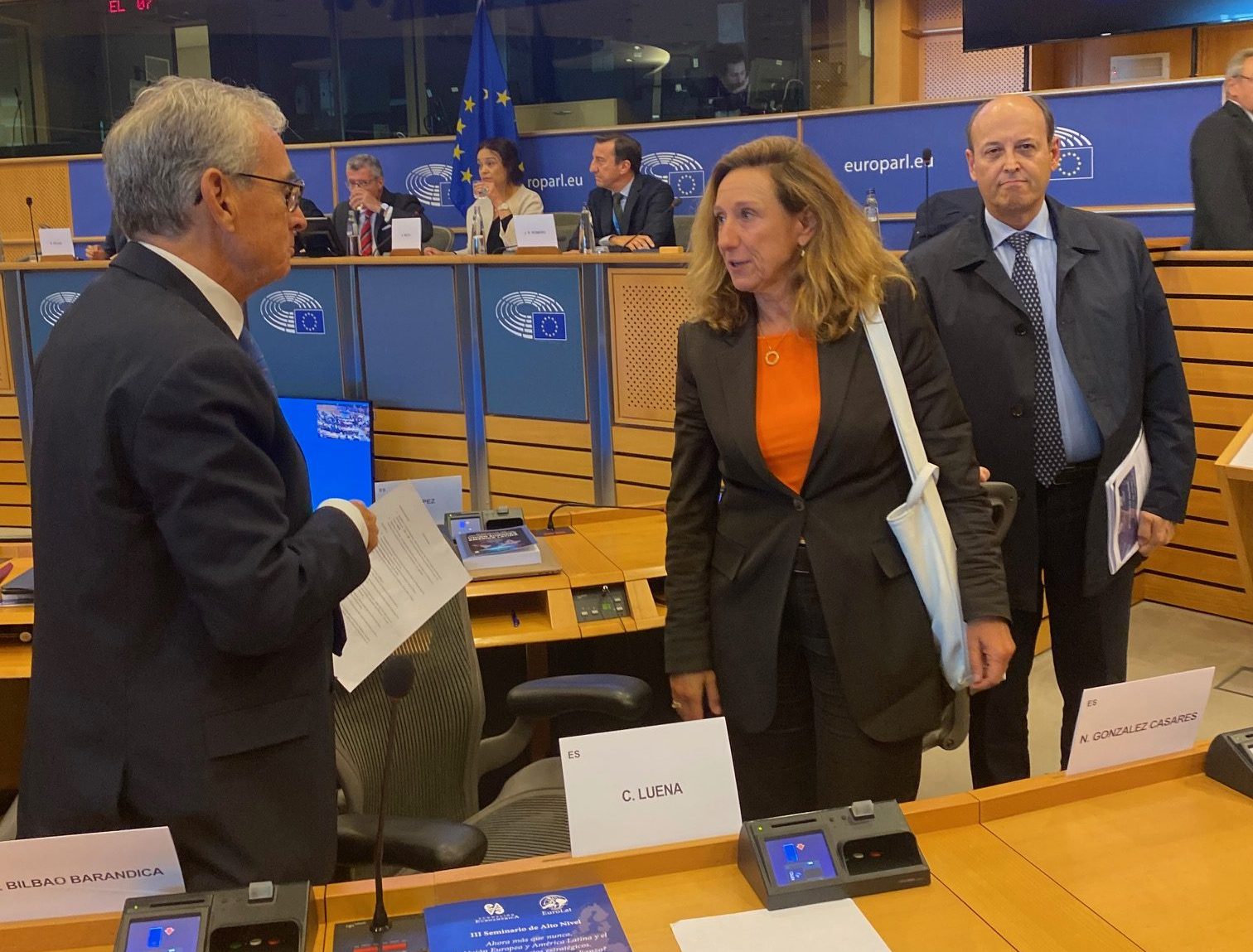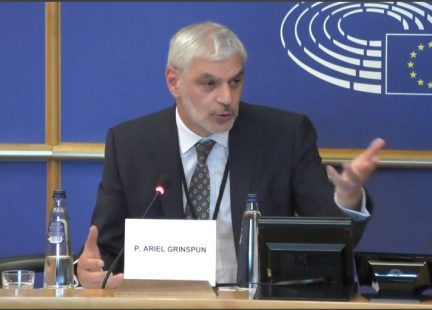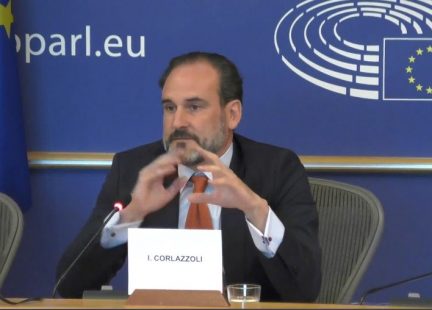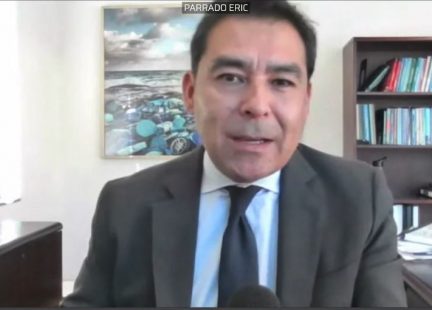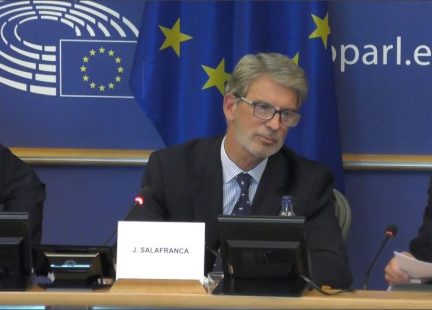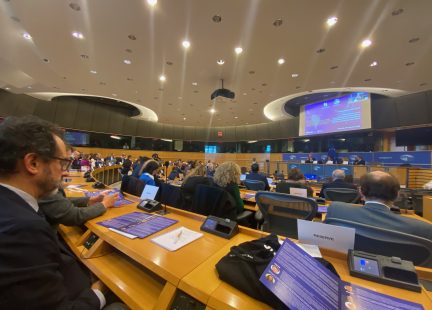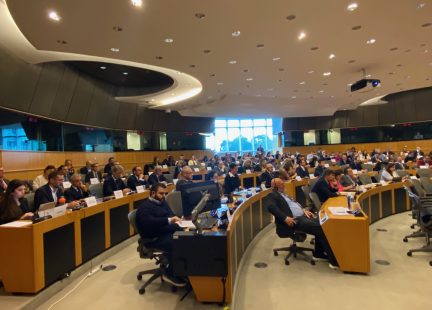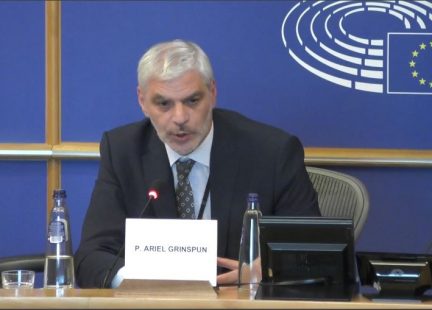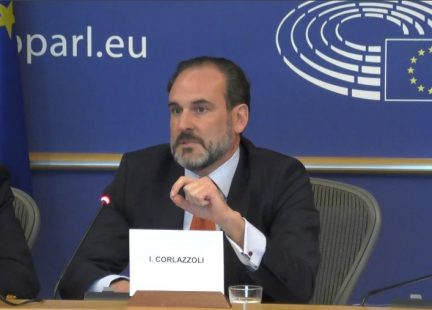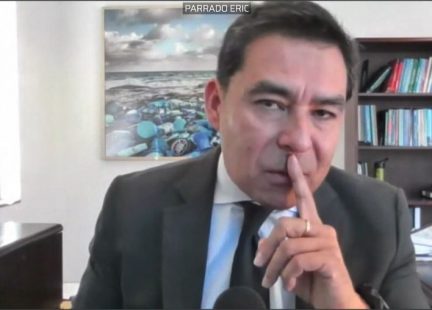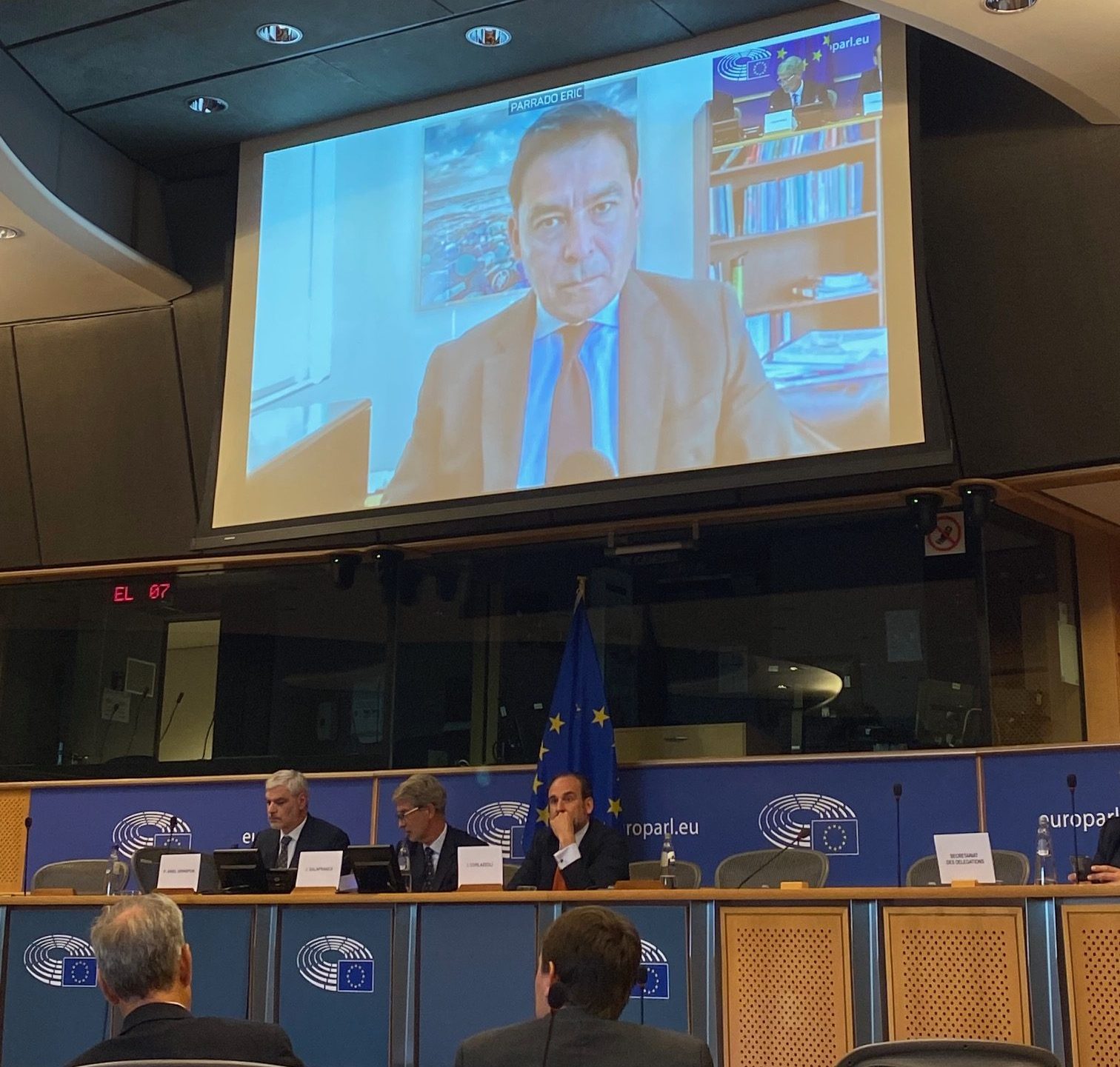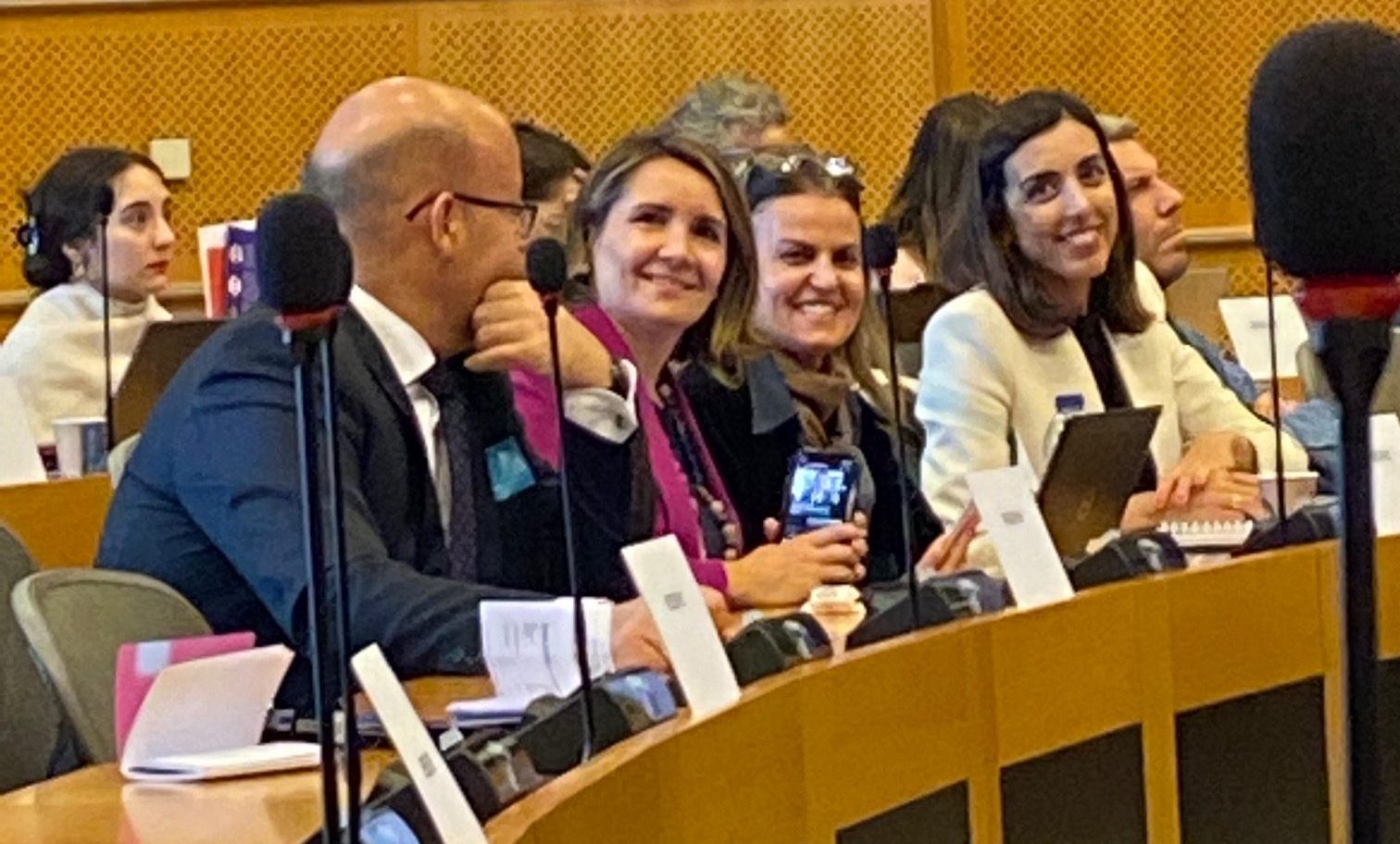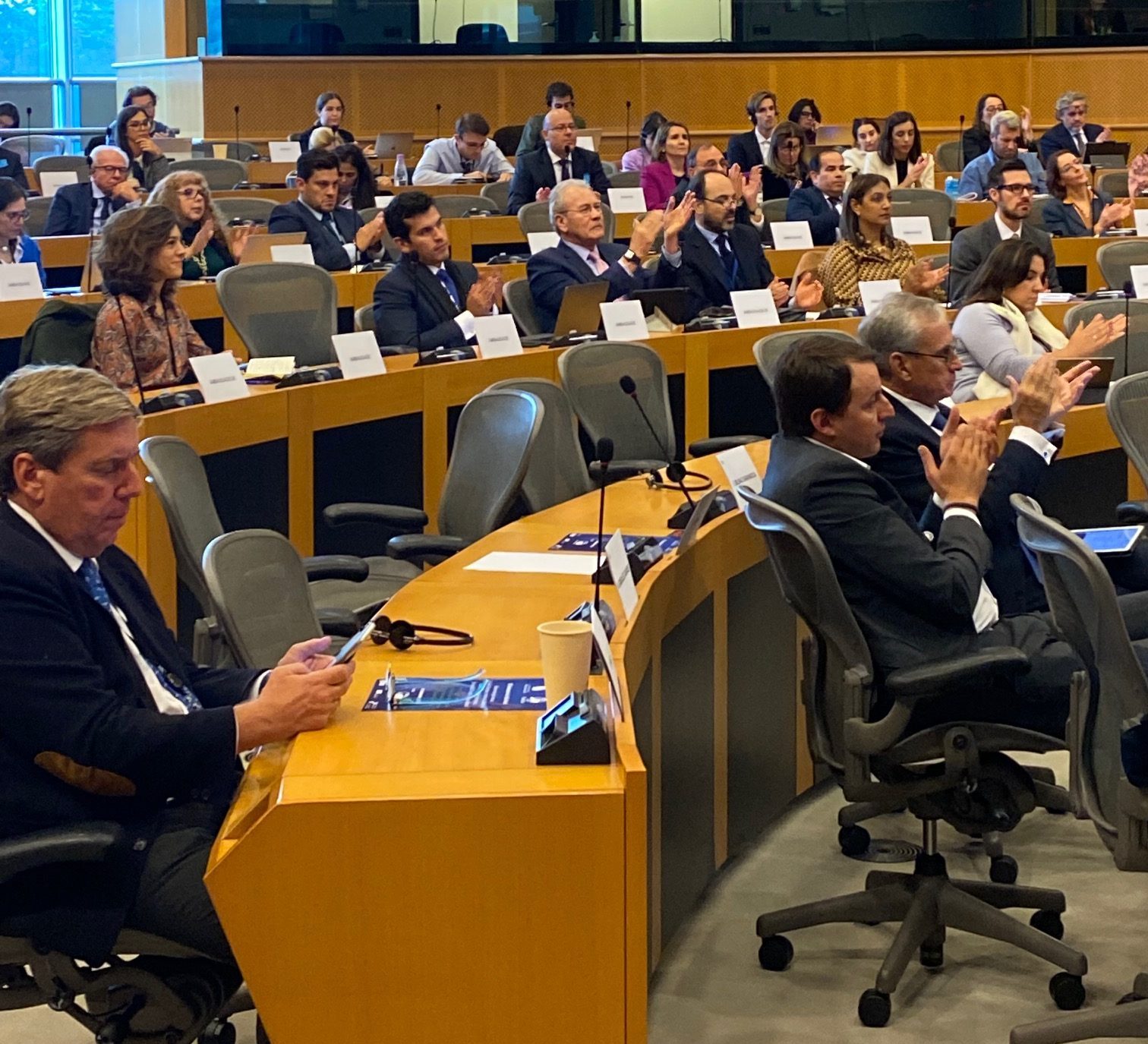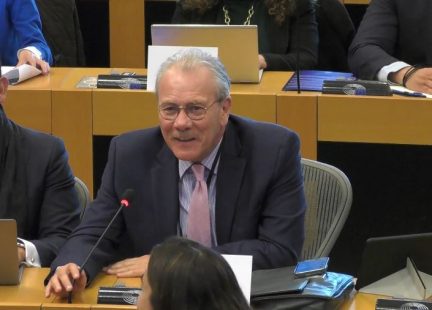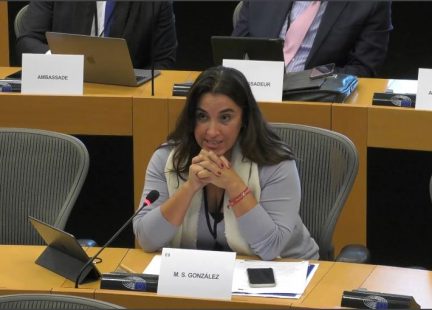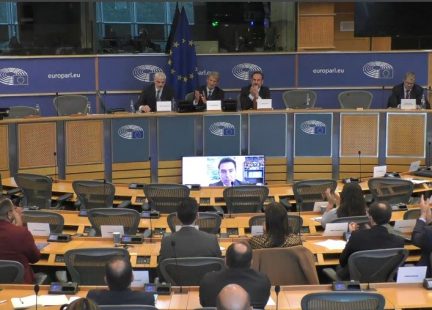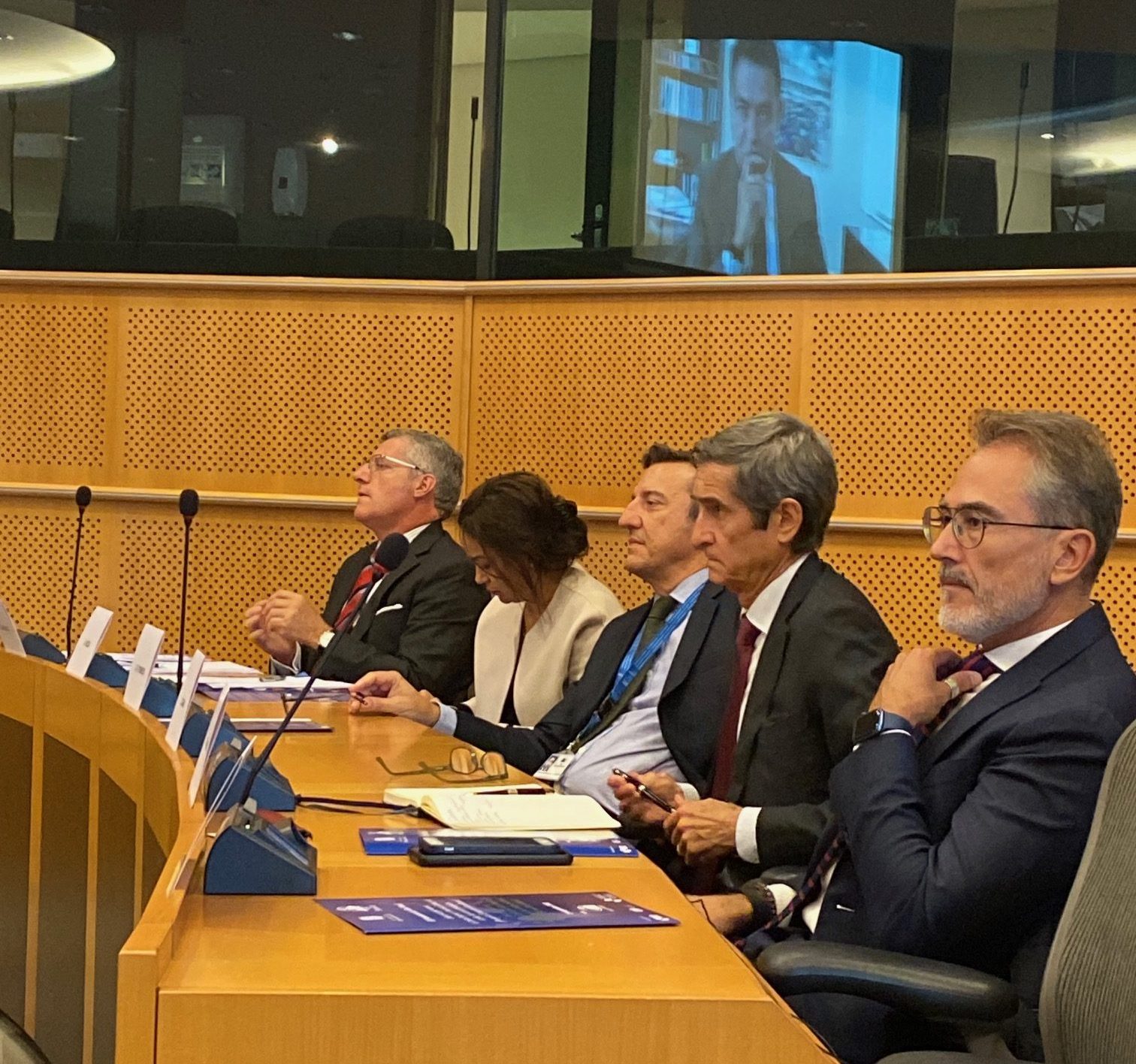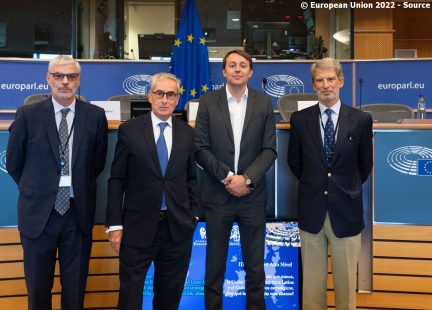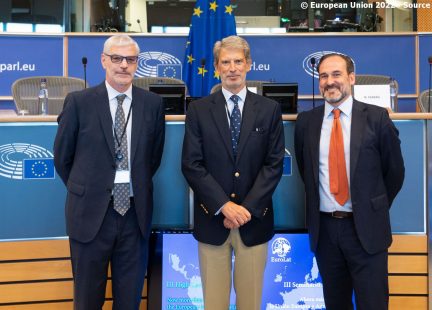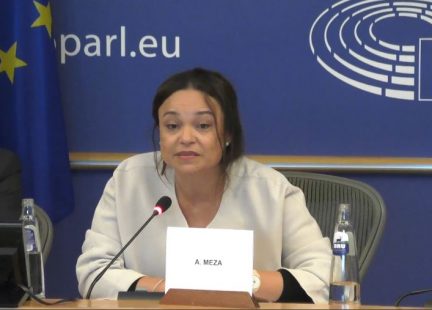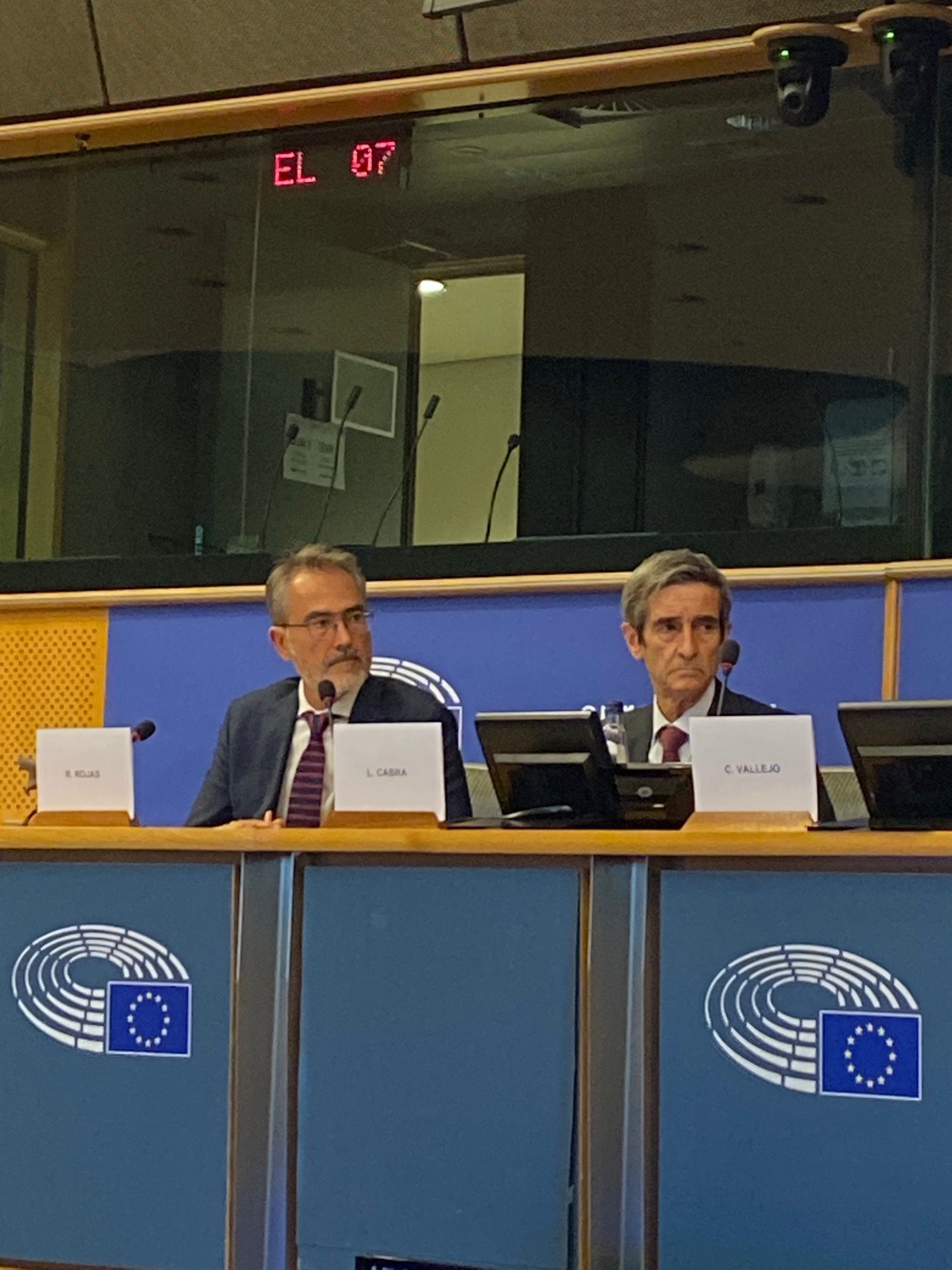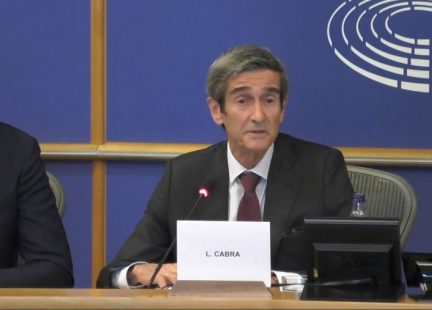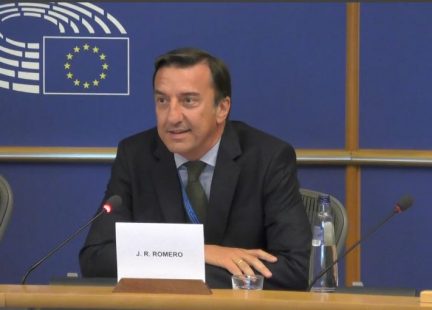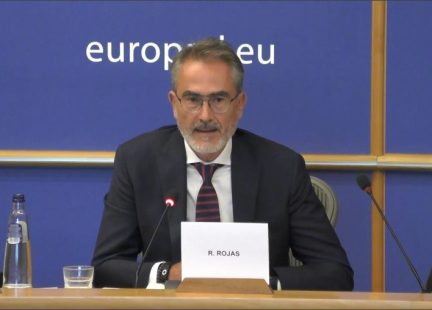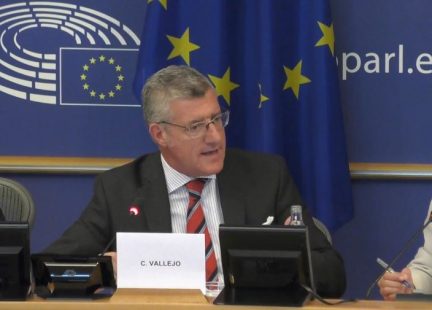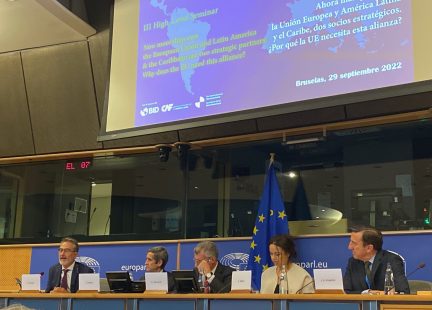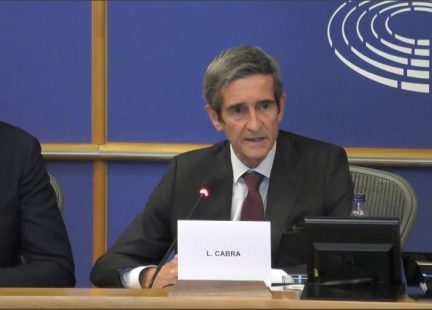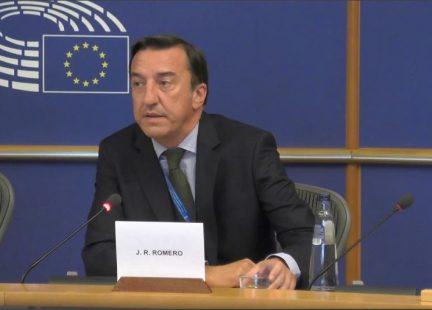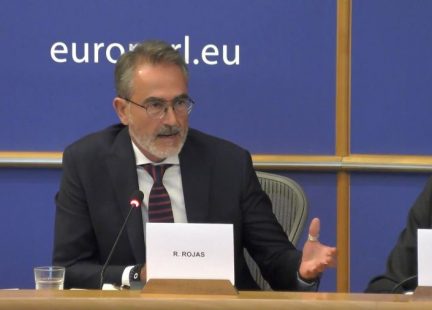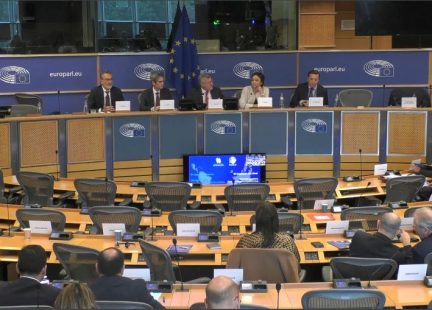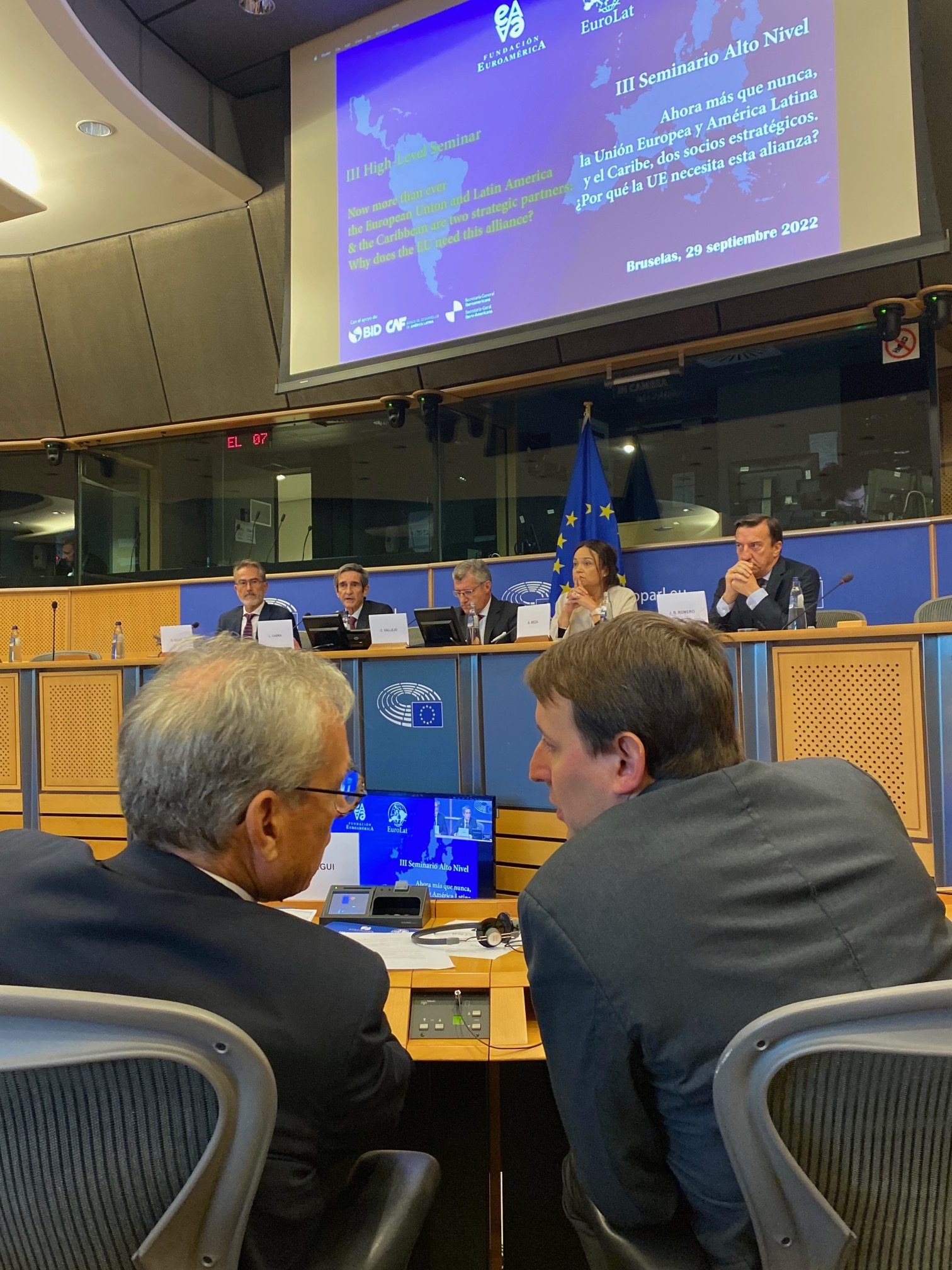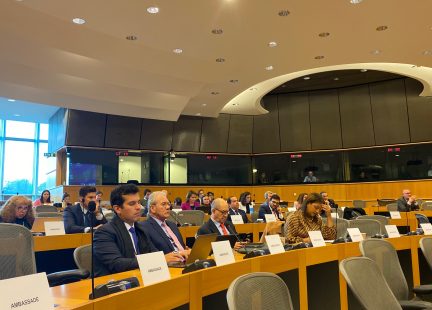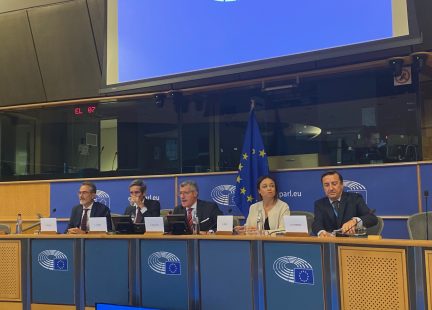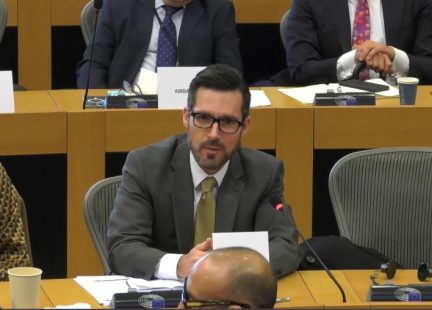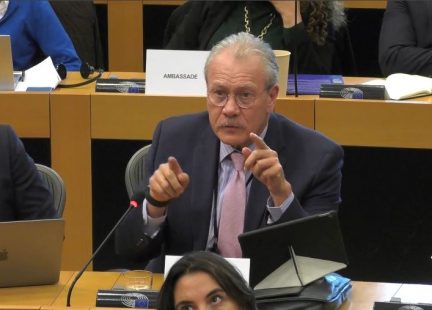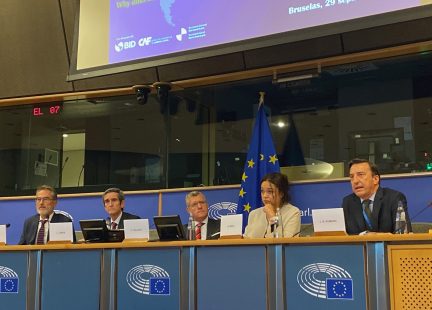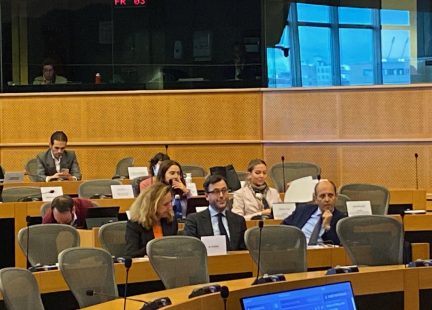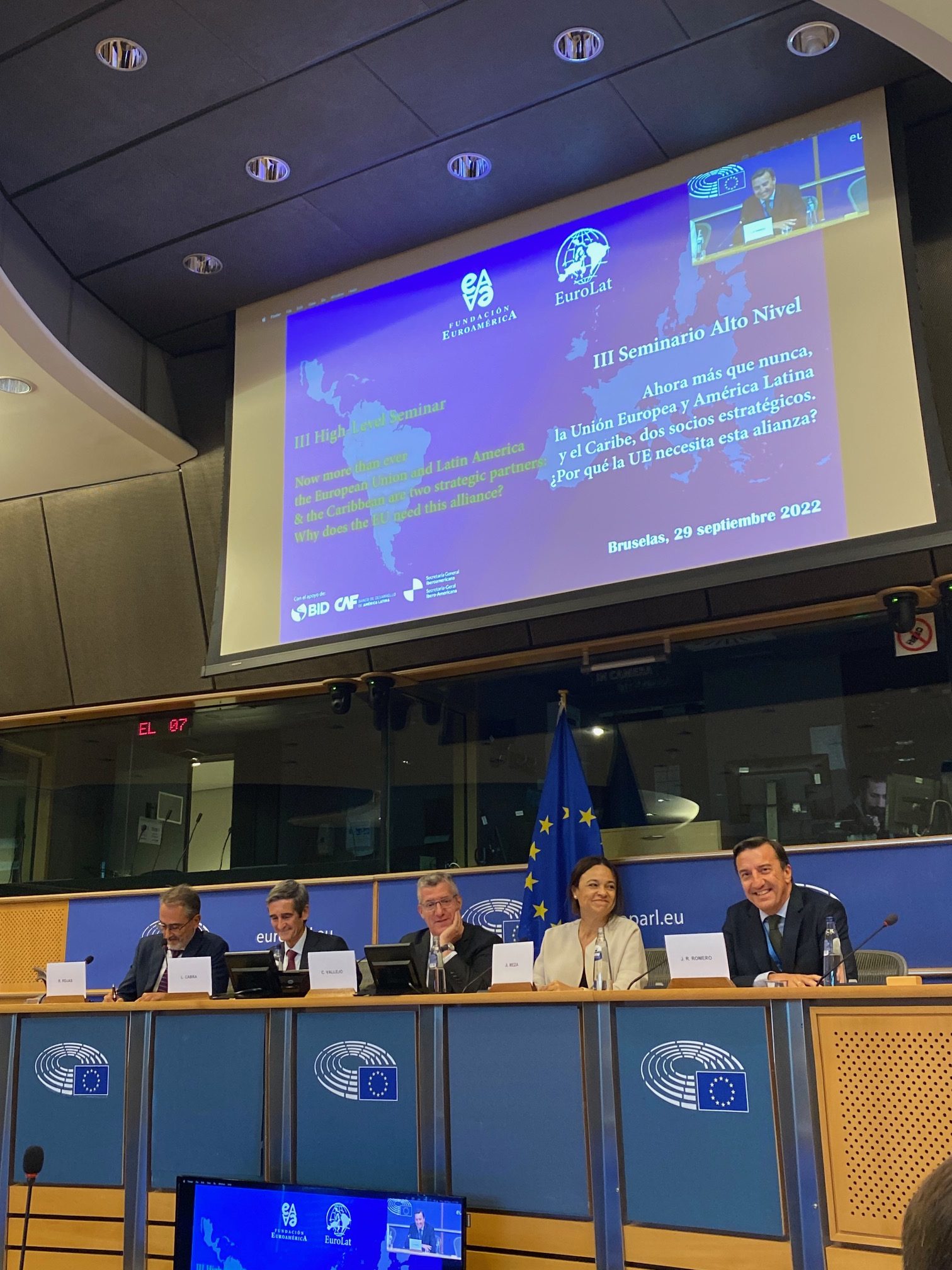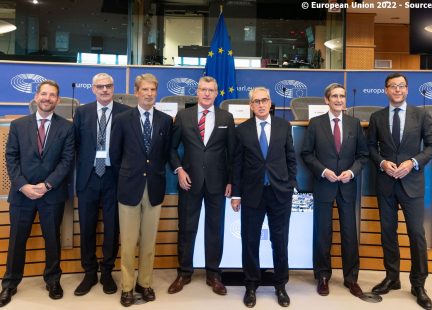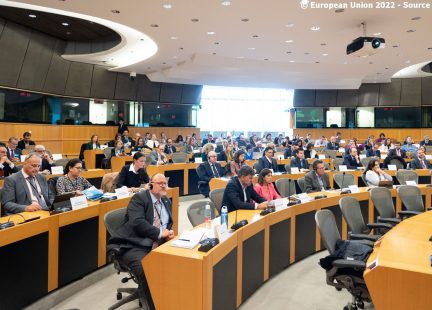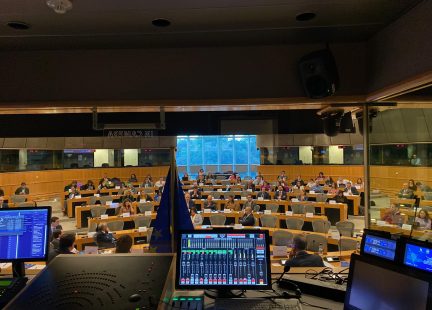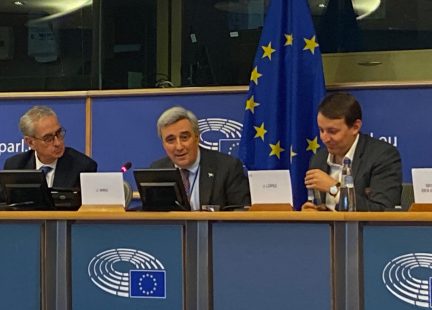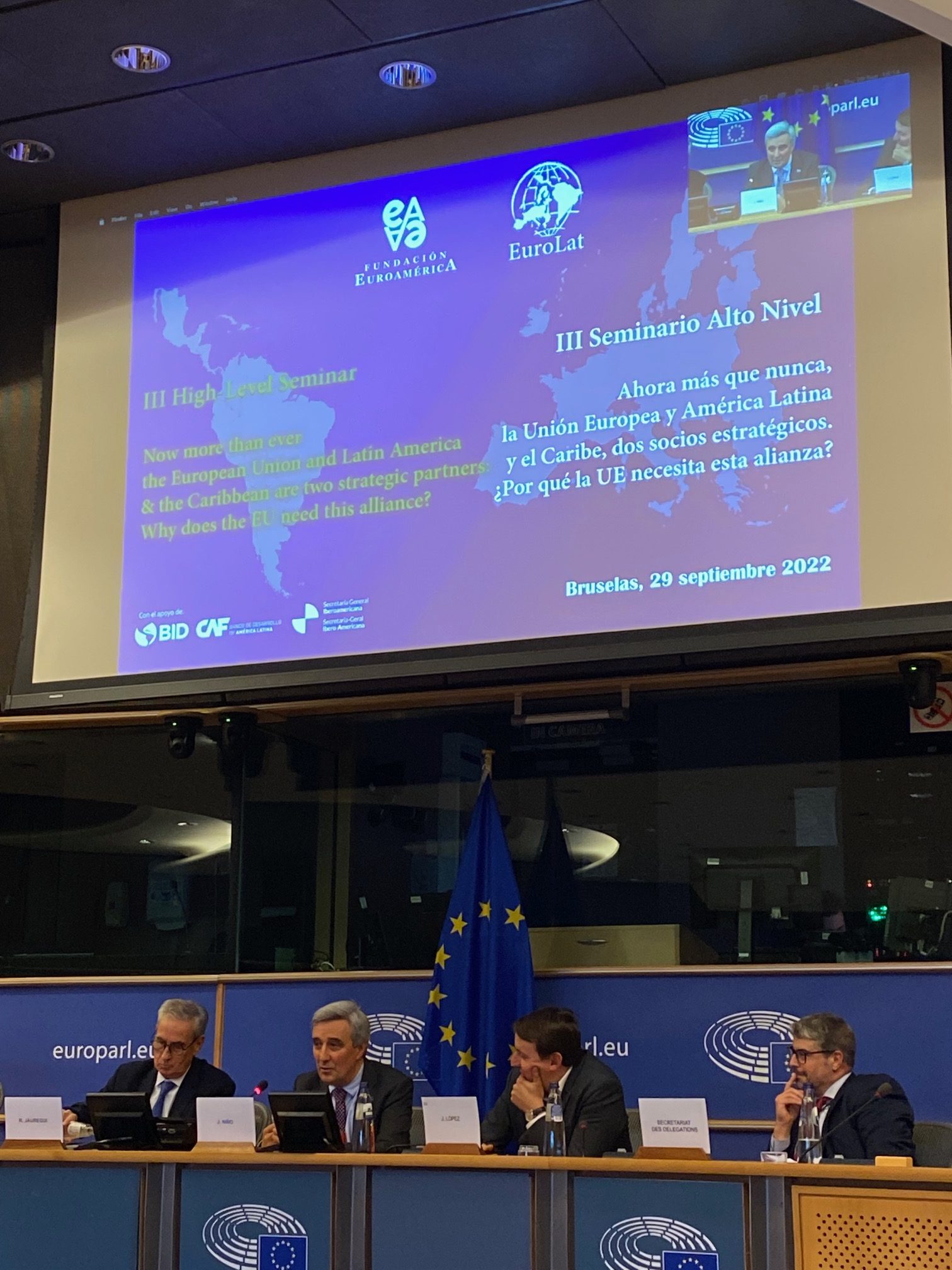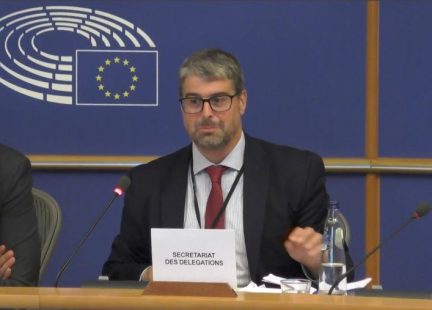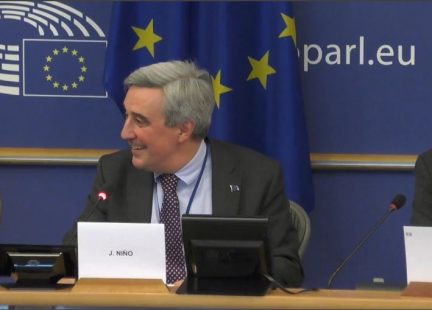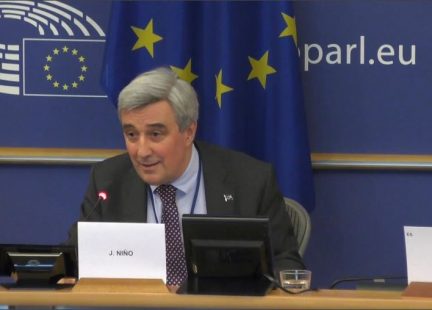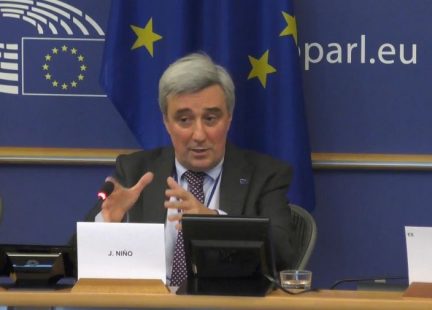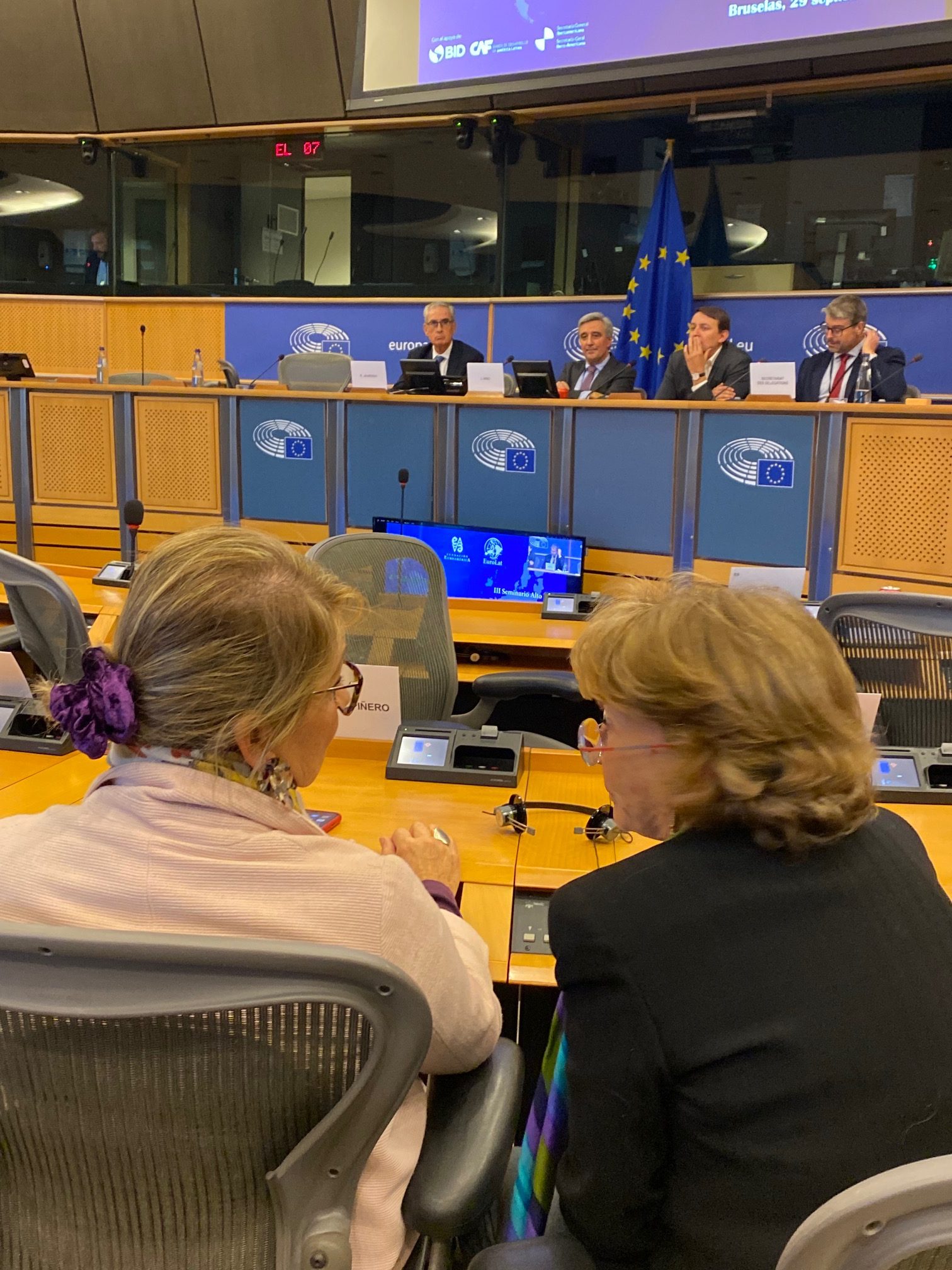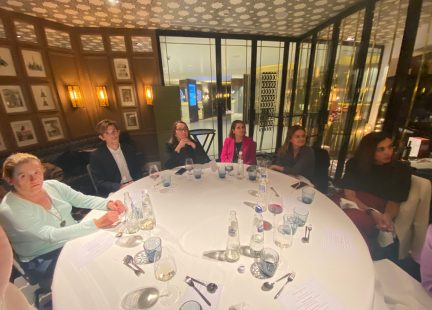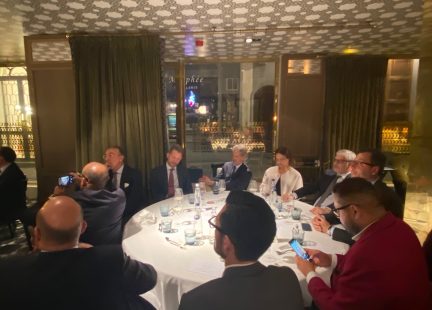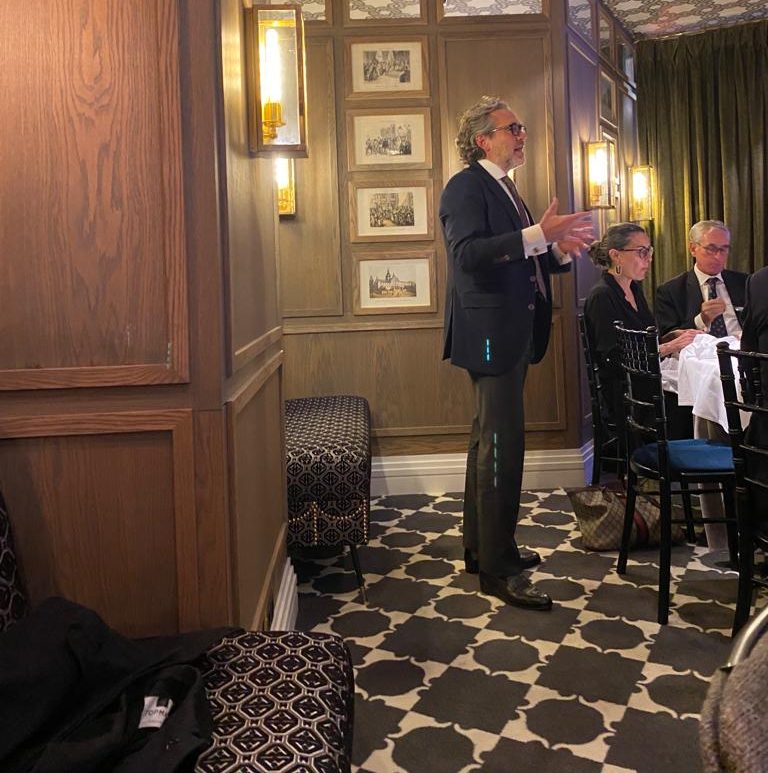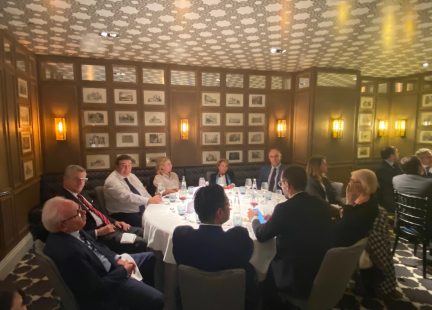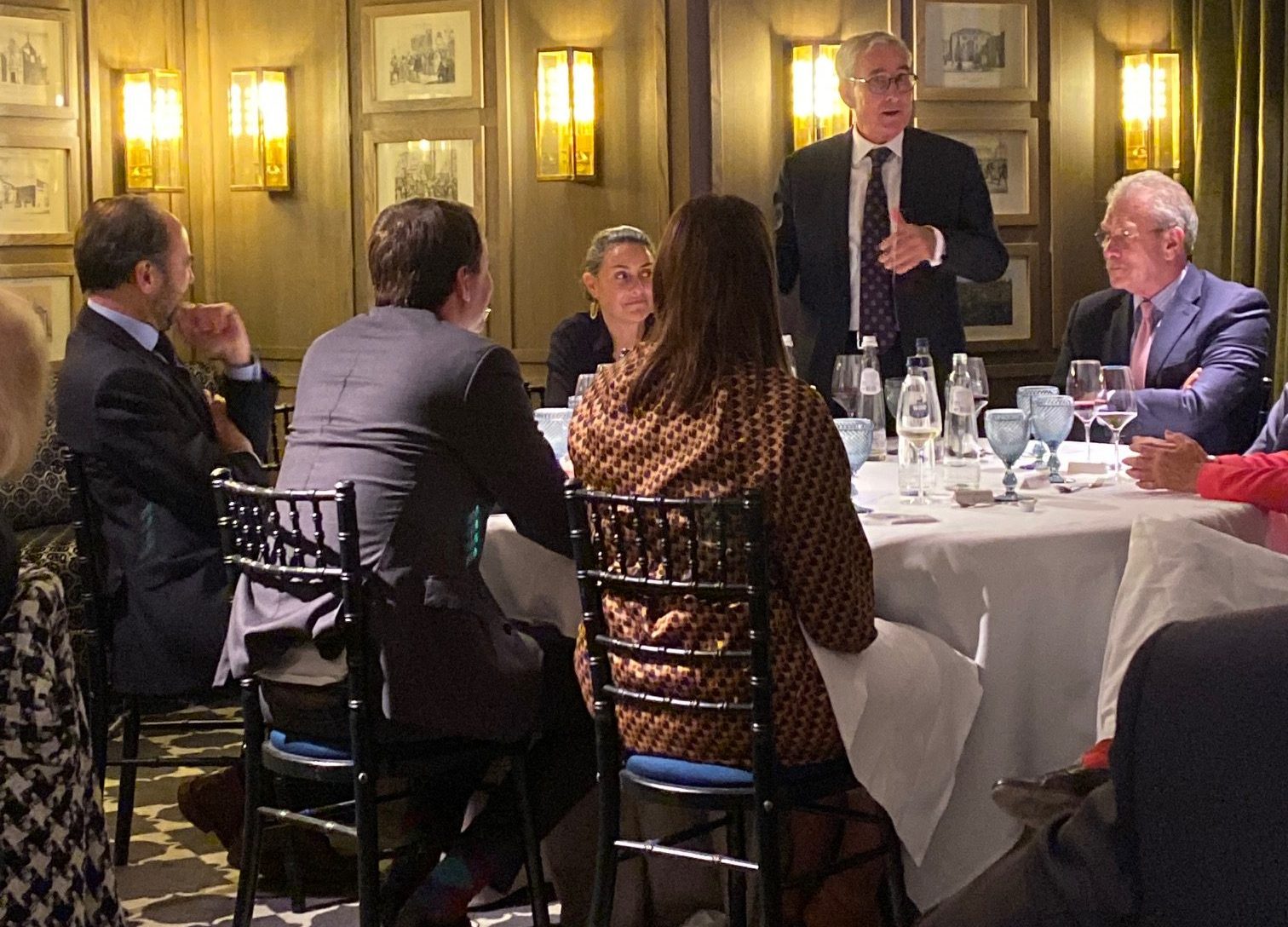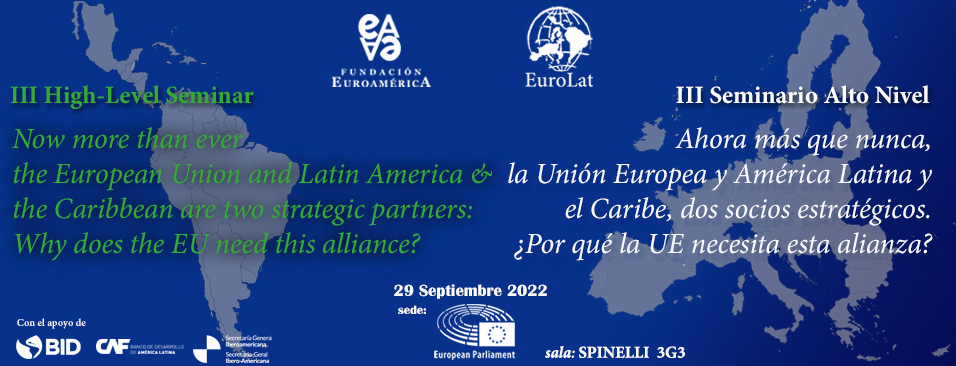
El contexto actual dibuja un escenario internacional muy complejo, agravado por la reciente invasión rusa a Ucrania. La geopolítica, que ya venía trasladando los núcleos de poder a otros puntos del planeta, ha dejado a la Unión Europea centrada en sus propias tensiones internas y de su vecindad más próxima. Sin embargo, la globalización es, a todos los efectos, innegable y los retos a los que nos enfrentamos son comunes y deben ser enfrentados entre todos. La lucha contra el cambio climático, la protección de los derechos humanos o la seguridad son sólo algunos de ellos.
Para luchar contra estos desafíos, hay dos herramientas sumamente eficaces. Una de ella es la integración, concebida como el mecanismo para generar políticas colectivas que den respuesta a los problemas que enfrenta toda la colectividad. En el caso de la UE, son varios los ejemplos recientes de la eficacia de esta integración: en su respuesta conjunta a la pandemia a través del plan de vacunación europeo o el de ayuda financiera a los Estados miembros más afectados; y en la reciente crisis provocada por la invasión rusa a Ucrania, a través de la respuesta conjunta en el apoyo financiero, humanitario, político y defensivo a Ucrania, y las sanciones a Rusia. La otra herramienta esencial para afrontar los desafíos globales es el multilateralismo, que en los últimos años está siendo golpeado por acontecimientos unilaterales peligrosos, por nacionalismos extremos o la bipolaridad Estados Unidos–China. Es necesario reforzar las instituciones internacionales como motor de un multilateralismo capaz de hacer frente a los desafíos de un mundo hostil.
En América Latina y el Caribe, el proceso de integración regional no pasa por su mejor momento. La pandemia puso de relieve en el mundo entero, y en especial en la región, sus carencias y desigualdades, así como la necesidad de acometer reformas estructurales para lograr su recuperación a través de un crecimiento sostenible económico y social que sea más justo y equitativo.
América Latina y el Caribe y la UE defendemos un marco de valores democráticos semejante. La integración y el multilateralismo son parte de nuestro mutuo universo, de manera que la asociación entre la UE y América Latina y el Caribe tiene el deber de profundizar en su alianza.
El contexto actual hace necesario replantear las bases de esta asociación birregional. Para ello, es necesario acelerar las dos transformaciones que son el núcleo de la actual política europea: las transformaciones ecológica y digital. El Espacio EuroLatinoamericano constituye un campo de posibilidades ilimitadas en ambas materias.
Para abordar todos los temas anteriormente expuestos, y poner de manifiesto el enorme potencial y la oportunidad única que supone América Latina y el Caribe para la Unión Europea, y viceversa. Se propone la celebración de un encuentro en la sede del Parlamento Europeo en Bruselas como un espacio de diálogo y puesta en común de ideas y propuestas entre expertos de ambos lados del Atlántico en torno a los temas planteados en el programa.
………………………………………………
The current context presents a very complex international scene, aggravated by the recent Russian invasion of Ukraine. Geopolitics, which was already shifting power hubs to other parts of the planet, has left the European Union focused on its own internal tensions and its closest neighbourhood. However, globalisation is, to all intents and purposes, undeniable and the challenges we face are common and must be faced by all. The fight against climate change, the protection of human rights or security are just some of them.
To tackle these challenges, there are two highly effective tools. One of these is integration, conceived as the mechanism for generating collective policies that address the problems faced by the whole community. In the case of the EU, there are several recent examples of the effectiveness of this integration: in their joint response to the pandemic through the European vaccination plan or financial support to the most affected Member States; and in the recent crisis caused by the Russian invasion of Ukraine, through the joint response in financial, humanitarian, political and defensive support to Ukraine, and sanctions against Russia. The other key tool to address global challenges is multilateralism, which in recent years has been hit by dangerous unilateral events, extreme nationalism or bipolarity between the US and China. It is necessary to strengthen international institutions as a driver of multilateralism capable of meeting the challenges of a hostile world.
It is not the best time in Latin America and the Caribbean for the process of regional integration. The COVID 19 pandemic highlighted throughout the world, and especially in the region, its shortcomings and inequalities, as well as the need for structural reforms to achieve its recovery through fairer and more equitable sustainable economic and social growth.
Latin America and the Caribbean and the EU stand for a similar democratic values framework. Integration and multilateralism are part of our mutual universe, so that the partnership between the EU and Latin America and the Caribbean has a duty to deepen their alliance.
The current context makes it necessary to rethink the foundations of this bi-regional partnership. To this end, it is necessary to speed up the two transformations at the heart of the current European policy: green and digital transformations. The Euro-Latin American area has unlimited possibilities in both fields.
To address all the issues outlined above, and to highlight the huge potential and unique opportunity that Latin America and the Caribbean represent for the European Union, and vice versa, it is proposed that a meeting be held at the European Parliament in Brussels as a space for dialogue and sharing of ideas and proposals between experts from both sides of the Atlantic on the topics raised in the programme.
29 septiembre / 29 September
Comienzo: 15,00h. (Bruselas)
Programa para imprimir / Programme to print
En orden alfabético / in alphabetical order
Pendiente de confirmar / To be confirmed (*)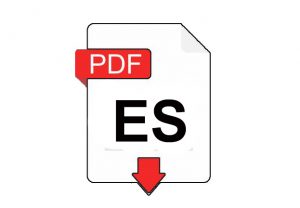
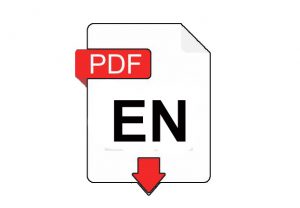
15.00h Palabras de bienvenida e introducción /Opening session

JAVI LÓPEZ
Presidente de la Asamblea EuroLat, Parlamento Europeo
Chair of the Delegation to the Euro-Latin American Parliamentary Assembly, European ParliamentIntervenciones especiales de inauguración: ¿Por qué la Unión Europea y América Latina y el Caribe se necesitan mutuamente?
Special opening intervention: Why the European Union and Latin America and the Caribbean need each other?
MYRIAM FERRÁN
Directora General Adjunta, DG Asociaciones Internacionales, Comisión Europea
Deputy Director-General, DG International Partnerships, European Commission
RAMÓN JÁUREGUI
Presidente de la Fundación Euroamérica
Chair of Euroamérica Foundation15.45h Primera Sesión: Integración y multilateralismo, claves para la recuperación y el desarrollo de ALyC. Cooperación con la Unión Europea
First session: Integration and multilateralism: keys to Latin American & Caribbean recovery and development cooperation with the European Union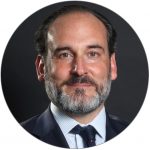
IGNACIO CORLAZZOLI
Gerente en Europa, Asia y Medio Oriente de CAF, Banco de Desarrollo de América Latina
Manager in Europe, Asia and the Middle East at CAF – the Development Bank of Latin America
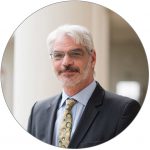
PABLO GRINSPUN
Embajador de Argentina ante la Unión Europea – presidencia argentina pro-tempore de CELAC
Ambassador of Argentina to the European Union – Argentinian pro-tempore presidency of CELAC

ERIC PARRADO (online)
Economista Jefe y Gerente General del Departamento de Investigación del Banco Interamericano de Desarrollo (BID)
Chief economist and general manager of the IDB’s Research DepartmentIntroducción y moderación /Introduced and moderated by 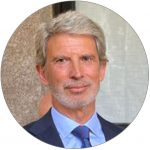
JOSÉ IGNACIO SALAFRANCA
Vicepresidente de la Fundación Euroamérica
Vice-Chair, Euroamerica Foundation16.45h
Segunda sesión: La transición ecológica como objetivo y la digitalización como herramienta. Cómo aterriza esa transición en sectores estratégicos: agricultura, energía y aeronáutico. Experiencia en América Latina
Second session: The green transition as a goal and digitalisation as a tool. How the transition can be achieved in three strategic sectors: agriculture, energy and aeronautics. Experience in Latin AmericaInvitada de honor/ Guest of honour 
ANDREA MEZA
Secretaria Ejecutiva Adjunta de UNCCD, Convención de Naciones Unidas para Combatir la Desertificación
Deputy Executive Secretary, Convention to Combat Desertification (UNCCD), United Nations

JORGE RODRÍGUEZ ROMERO
Jefe de Unidad de Cooperación Global en Materia de Medio Ambiente y Multilateralismo, DG. de Medio Ambiente, Comisión Europea
Head of Global Environmental Cooperation & Multilateralism Unit, European Commission, DG Environment
Transición ecológica en el sector de la energía / The green transition in the energy sector: 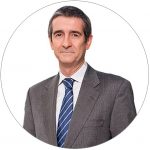
LUIS CABRA
Director General de Transición Energética, Tecnología, Institucional y adjunto al CEO. Miembro del Comité Ejecutivo de Repsol
General Director for Energy Transition, Technology, Institutional and Assistant to Repsol’s CEOTransición ecológica en el sector aeronáutico / The green transition in the aeronautics sector
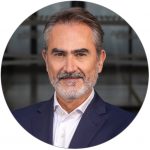
RICARDO ROJAS
Senior Vice-President. Head of Constituent Assembly at Airbus & National Representative, Airbus Operations, Spain
(+ Información / Information)
Introducidos y moderados / Introduced and moderated by 
CLAUDIO VALLEJO
Director Latam Desk Europa, LLYC
(+ Información / Information)
18.00h Intervención de clausura/closing remarks: 
JAVIER NIÑO
Director Gerente Adjunto para las Américas del Servicio Europeo de Acción Exterior
Deputy Executive Director for the Americas, European External Action Service (EEAS)
(+ Información / Information)18:30h Networking cocktail Palabras de bienvenida e introducción /Opening session
Primera Sesión: Integración y multilateralismo, claves para la recuperación y el desarrollo de ALyC. Cooperación con la Unión Europea
First session: Integration and multilateralism: keys to Latin American & Caribbean recovery and development cooperation with the European UnionSegunda sesión: La transición ecológica como objetivo y la digitalización como herramienta. Cómo aterriza esa transición en sectores estratégicos: agricultura, energía y aeronáutico. Experiencia en América Latina
Second session: The green transition as a goal and digitalisation as a tool. How the transition can be achieved in three strategic sectors: agriculture, energy and aeronautics. Experience in Latin AmericaIntervención de clausura/closing remarks:
Cena posterior al Seminario
Noticias 

